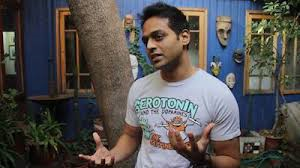'Digital health innovation has been growing exponentially'
October 11, 2014 | Saturday | Interviews | By BioSpectrum Bureau
Digital health innovation has been growing exponentially
Mr Shreekant Pawar, CEO
1. What, in your opinion has been the breakthrough digital health technology in the world?
This ones a tough one because in the recent past, digital health innovation has been growing exponentially not only from the west but also from countries where managing and curbing diseases has been the most difficult.
2. How has this industry mushroomed in the last few years?
Over the past three years, the industry in US has seen a whopping 27 percent increase. According to Research firm, Park Associates, the industry was doing $1.7 billion in 2010 and it predicts to grow to $5.7 billion by next year. The industry has seen massive growth in chronic care monitoring or management, senior citizens care and health and fitness domain.
3. What does the government budget hold for digital health companies?
So far India stands poorly in the Global digital health. The first step taken by the new government is charting the roadmap for inclusive Digital India. The finance minister has set aside Rs 500 crore for the propagation of broadband, IT, hardware manufacturing and special focus is on software development. This indirectly points out to digitalisation and more reach. Of course, keeping this in mind, it would be easier for digital health companies to reach remotest of the population and offer their services, however its will take some time to become reality but atleast there is a start.
4. How stringent are the regulations for this new industry of digital/smart healthcare?
The regulatory bodies have become aware of the rising trend and increase in digital healthcare companies. As a matter of fact, FDA has issued a new guidelines to regulate mobile medical apps. They will apply the same risk-based approach to assure safety and effectiveness for other medical devices.
5. How has your company managed to overcome competition in this space?
We have not launched the product yet and its too early to answer this question.
6. Have the consumers in the world become more smart about healthcare choices and improving technology in this space?
In 2012, 19 percent of the mobile smartphone owners had at least one health app and the downloads number is going to increase to 142 million by 2016. Moreover, 69 percent of the American adults are willing to communicate with their healthcare providers via email and 40 percent by mobile health applications. This explains the acceptance of health tech amongst the normal population.
7. What are the current trends in Digital Healthcare across the Asia?
1. Use of social media to spread awareness about communicable and non-communicable diseases by governments.
2. Mobile payments adoption by pharmacies and point of sale retailers.
3. Use of big data by companies to identify behavioural patterns in chronic care.
8. Please elaborate on the role of Digital Health in transforming healthcare.
Prior to Digital health, insights on human health were only dependent on healthcare practitioners opinion and advice. The investigations were driven on doctors discretion which in turn was limited to human error however now with the digital healthtech/care advancing, there is a shift of power from doctor to the patient. Digital innovations make it possible for consumers to use portable devices to access their health parameters, monitor vital signs and get a better insight on their health profile. There is an increase in shift from populistic view to an individualistic profiles giving us better understanding on the genomic level. This has catapulted the success rate and chances of finding anomalies and coming one step closer to finding cures for incurable diseases, giving better insights on chronic management and better healthcare in total.
9. Give us your perspective on Digital Healthcare policies in India and around the globe.
This would be a very descriptive answer depending on the comparison of the country/continent healthcare policies. In general, India's spent on healthcare is less than 4 percent and thus India ranks lowest in the global health rankings.









